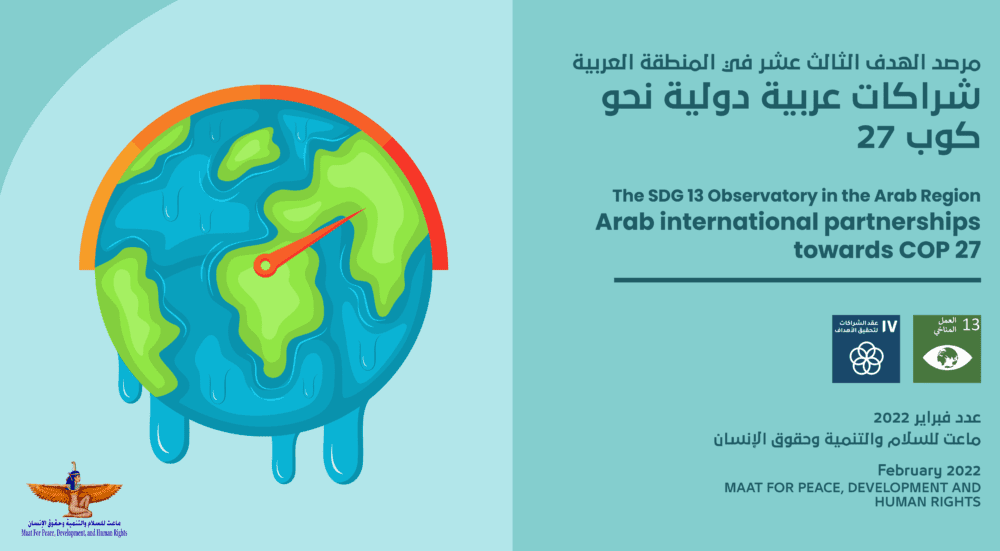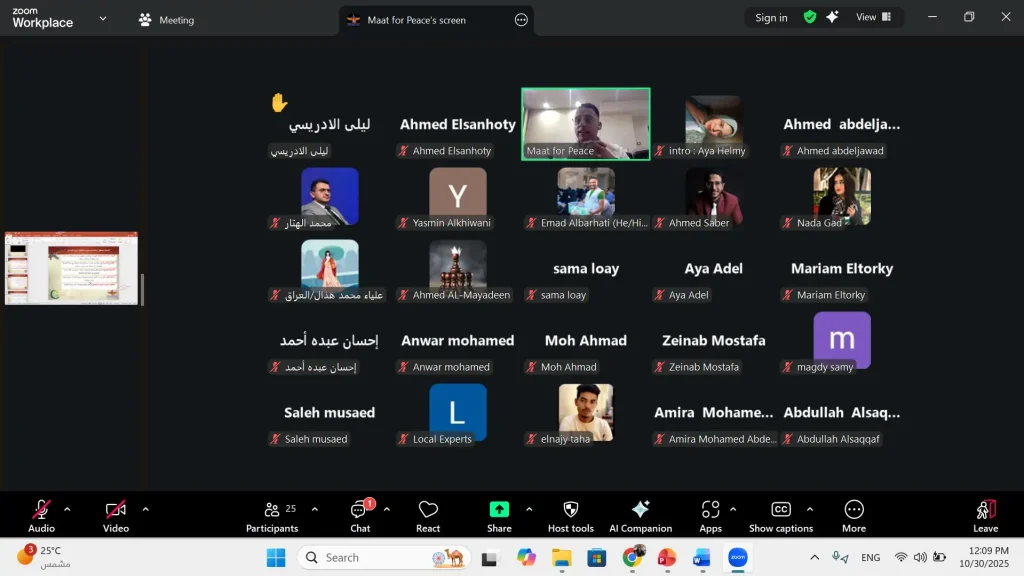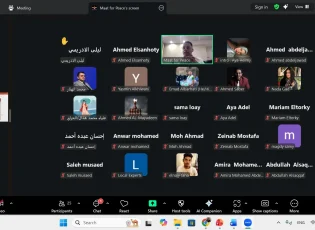Maat: Climate change in the Arab region may become deadlier than the threat of conflicts and wars
Okeil: We recommend the formulation of a unified regional strategy that will serve as an organized framework for climate change in the Arab region
Salah: Activating green city models could be an effective solution to the climate crisis
Maat for Peace, Development and Human Rights has stressed that climate change and its severe consequences have dire impacts on all organisms worldwide, especially in the Arab region, where climate change is more dangerous than conflict and war, as it affects all aspects of economic and social life. However, despite those challenges, the governments of the Arab States have strived to find solutions to the crisis, developed strategies and launched initiatives in an effort to provide a green and sustainable future for future generations.
This was explained in Maat’s second monthly report entitled "The 2030 SDG 13 Observatory in the Arab Region - February issue", in which it tracks the good practices and challenges faced by Arab countries in achieving goal 13 of the 2030 Agenda for Sustainable Development. The observatory of February monitors the most prominent efforts of Arab governments with regard to the file of managing climate change in accordance with the United Nations Framework Convention on Climate Change.
The United Arab Emirates has been selected as the country focus of the second issue, owing to its good practices in this regard, and given the fact that it is the first country in the Middle East to launch a "strategic initiative" targeting carbon neutrality by 2050 in October 2021, particularly its efforts during February, which are consistent with its climate strategies, as well as its hosting of the COP 28 in 2023.
Commenting to what was indicated in the second issue of the observatory, Ayman Okeil, the President of Maat for Peace, Development and Human Rights, estimated the efforts of Arab governments during February to promote the goals of sustainable development, in particular their active participation in the Arab Sustainable Development Week. Okeil stressed the importance of this event in strengthening the objectives of climate action. Several sessions were held on the seriousness of the consequences of climate change and the importance of strengthening collaboration among Arab countries on climate change crises. In this context, Okeil recommended the governments of the Arab States to work on the formulation of a regional strategy for the Arab States, which would serve as a regulating framework for governmental action with regard to climate change.
Maryam Salah, a researcher at the Sustainable Development Unit of Maat for Peace, pointed to the efforts made by the Arab States during February, particularly those related to raising the capacity of local communities to cope with climate change. In February, a number of Arab capitals witnessed a series of activities and workshops that contribute to increasing the capacity of local communities to deal with the consequences of climate change. The researcher also highlighted the effectiveness of tree-planting programs in cities and localities in the Arab States. This experiment has been proven successful in many Arab States. In this context, the researcher recommended that the governments of the Arab States launch further tree-planting campaigns to address climate change.
Notably, “SDG 13 Observatory in the Arab Region" is a monthly research periodical issued by Maat for Peace, Development and Human Rights to monitor good practices and obstacles facing Arab countries to achieve its goals, in order to complete Arab development efforts, given Maat’s capacity as a Northern African Coordinator in the NGO Major Group-Africa.

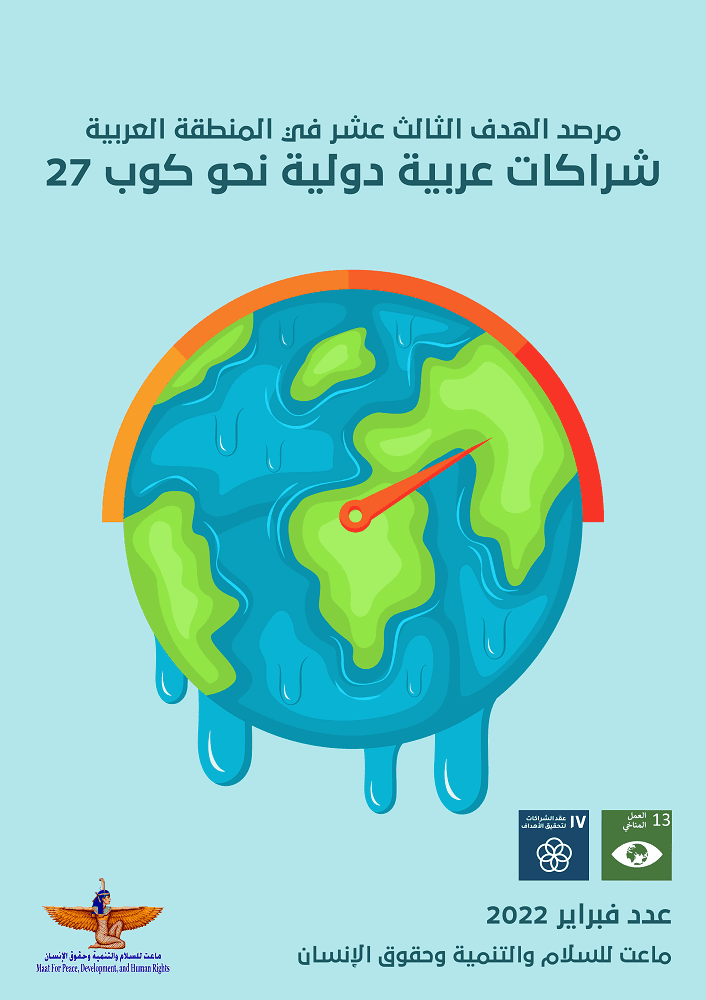 |
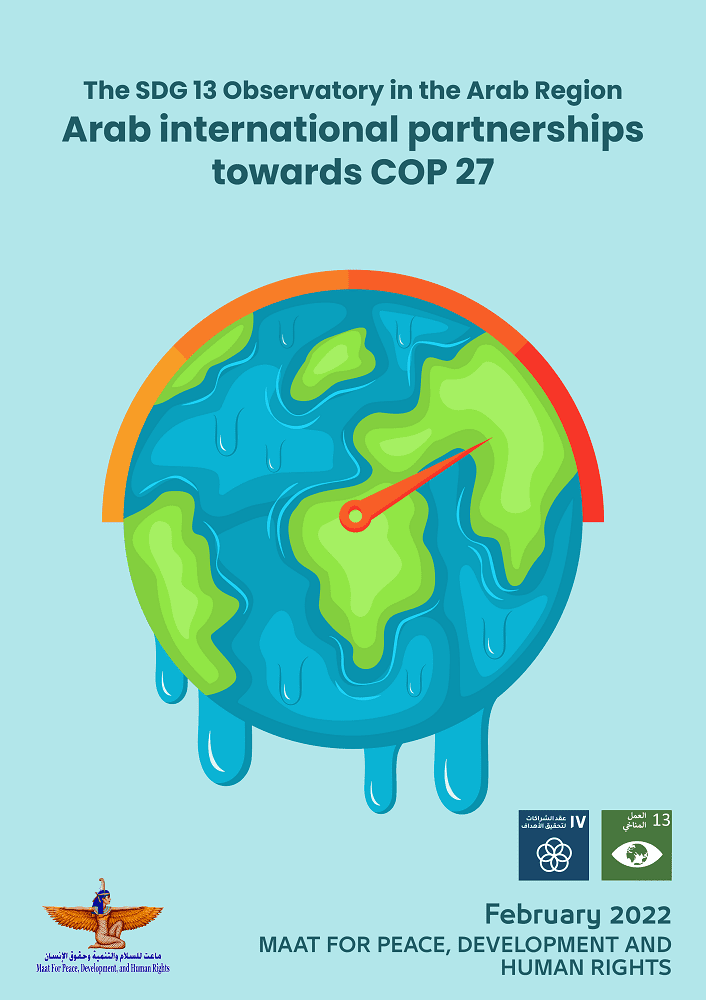 |
shortlink: https://maatpeace.org/en/?p=34686


